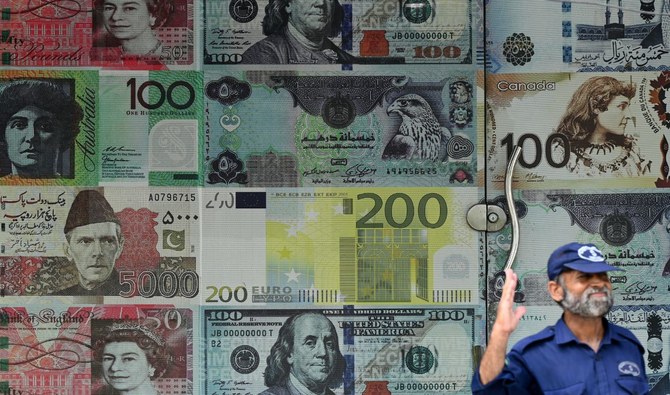KARACHI: The absence of political will and the inability to implement necessary structural reforms are the primary factors that have failed Pakistan in its quest to achieve economic stability, economists say, despite financial assistance from the International Monetary Fund (IMF) on multiple occasions over the decades.
The South Asian country last month signed a $3 billion Standby Arrangement (SBA) with the IMF making it the 23rd such deal with the global lender since 1958 when the country sought its first $25 million bailout, though the funds were not ultimately withdrawn, according to the IMF data.
Despite having a long history of reaching out to the IMF for financial assistance, the successive Pakistani governments have failed to complete the programs, except the one completed in 2013-2016, and set a direction for the country to attain economic stability.
Asked about the failures of the successive administrations in ending the country’s financial woes, Pakistani economists pointed to the politically weak governments and easy access to the IMF as the key factors that contributed to the economic failure.
“The first reason is that you have not completed any structural reform program of the IMF that we agreed with the Fund, so the problem lies with us,” Dr. Vaqar Ahmed, joint executive director at the Islamabad-based Sustainable Development Policy Institute (SDPI), told Arab News on Tuesday.
“The second reason is that we lack political will and consistency that is required to implement the structural reforms. The third is the inability of the civil service to implement the reforms.”
The expert noted that no Pakistani prime minister had ever completed their tenure, neither there were consistent policies in the country since its formation in 1947, which was vital to the continuation of structural reforms.
“Political cycle is short in Pakistan and these reforms, for example, in the energy sector need 10-15 years to be fully implemented, but the horizon of any government is not that longer,” Ahmed said.
When governments raise power tariff, they can’t withstand the public backlash and they eventually pull back the reforms, he added.
Some economists, however, believe the IMF does not have the remedy for the economic ills of Pakistan.
“It is the problem we have created and we can solve it with determination,” said Dr. Ashfaque Hassan Khan, a senior economist. “IMF will not solve our fundamental problems.”
Asked why governments preferred IMF bailouts if the lender could not resolve Pakistan’s woes, the veteran economist said there were two contributing factors that forced the governments to repeatedly approach the IMF.
“One is push and the other is pull factor,” Khan said, explaining the pull factor was from the IMF side to bring Pakistan into an IMF program, while the push factor involved people “strategically placed” within the country.
“These people employ fear tactics to compel prime ministers to seek assistance from the IMF, citing concerns about market instability and claiming the country would face severe consequences.”
Pakistan does not need the IMF for economic reforms as the fundament responsibility for this lies with the Pakistani policymakers, according to Khan.
“If we need to increase revenue, will we wait for the IMF to tell us? Similarly, if we have to rationalize our expenditures and curb our unnecessary imports, do we need IMF to tell us,” Khan asked.
“We are responsible for our economic problems and we can resolve them, but we are not doing this as we look for easy ways out.”
Political parties, according to Khan, also lack economic experts that adds to problems on the economic front.
Dr. Farukh Saleem, a financial analyst and former government spokesman, believed that putting the economy on the track was not a mandate of the IMF.
“It is not the mandate of the IMF to put the economy of any country on the track. It is the responsibility of the government of that country and its policymakers,” Saleem said.
“Whatever IMF says, that is in the interest of Pakistan. The IMF is sometimes scapegoated here. When they (governments) raise electricity or gas rates they say they are doing it on the demand of the IMF.”
But the fact was the IMF didn’t ask to raise power or gas tariffs, but it insisted on selling electricity at a price that was compatible with its cost and it discouraged subsidies, he said.
Saleem stressed the need to restructure the energy sector and to address the budget deficit, which he said germinated other ills.
The economists agreed the country needed a charter of economy with a long-term legal cover.
“Pick up three sectors for reforms such as taxation, energy and state-owned enterprises (SOEs) and draw action plan for next 15 years that should be backed by a legislative cover ensuring that nobody will disturb the plan,” Ahmed suggested.
















